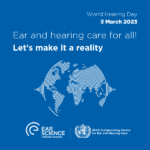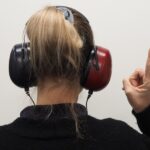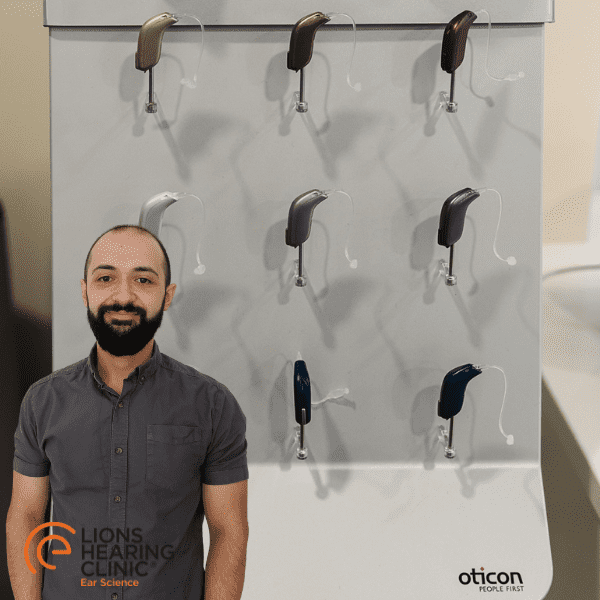Your hearing is important
Our ability to hear connects us to the world around us, enabling us to enjoy the sounds of nature, engage in conversations, appreciate music, and experience the joy of everyday life.
However, with the prevalence of loud environments, excessive noise exposure, and the widespread use of personal audio devices, our hearing is increasingly at risk.
Maintaining healthy hearing habits can be crucial for overall well-being and quality of life.
By taking proactive steps to protect our ears, we can prevent hearing loss and related issues.
Look after your ears and protect your hearing
Protect Your Ears from Loud Noises
Exposure to loud noises is one of the leading causes of hearing damage (WHO, 2021). When subjected to prolonged or excessive noise levels, the delicate structures in our ears can suffer irreversible harm. When attending concerts, working in noisy environments, or engaging in activities like shooting, mowing the lawn, using power tools, or riding motorcycles wear hearing protection such as earplugs or earmuffs to protect your ears and prevent permanent hearing loss.
Limit Volume Levels
When using headphones or earphones, it’s important to maintain safe volume levels. The World Health Organization recommends keeping the volume below 60% of the maximum level and limiting listening sessions to no more than 60 minutes at a time (WHO, 2022). Remember to regularly take breaks to give your ears a rest.
Practice Safe Listening at Concerts and Events
Attending concerts and live events can be enjoyable, but it’s crucial to protect your hearing. Maintain a safe distance from the speakers, take regular breaks in quieter areas, and consider using musician’s earplugs, which reduce volume without sacrificing sound quality.
Be Cautious with Personal Audio Devices
When using personal audio devices, such as smartphones, be mindful of the volume settings. Opt for over-ear or noise-cancelling headphones instead of earbuds to reduce sound leakage and minimise the need for higher volumes. Ensure the volume level is low enough that you can still hear external sounds.
Maintain Ear Health
Practice good hygiene, wash your hands frequently and get prompt medical attention for ear pain or hearing loss to reduce the risk of ear infections. Avoid using cotton swabs or other objects to remove ear wax that can push the ear wax further into the ear canal and result in serious injury and hearing loss.
Read Understanding the basics of ear wax to learn more about ear wax and how yo clean your ears.
Take Breaks from Noisy Environments
If you frequently find yourself in loud environments, such as construction sites or noisy offices, try to take regular breaks in quieter areas. Giving your ears intermittent periods of rest can help reduce the risk of long-term damage (WHO, 2022)
Stay Active and Eat a Healthy Diet
Regular exercise and a balanced diet can contribute to overall well-being, including hearing health (Emmett, 2015). Engaging in physical activity improves blood circulation to the ears, while a nutrient-rich diet promotes the health of the delicate structures responsible for hearing reference (Zhan, 2011).
Get Regular Hearing Checks
Make it a habit to have your hearing checked regularly by a qualified audiologist. Early detection of any hearing issues can lead to timely intervention, preventing further damage or complications. Your audiologist can also provide guidance on hearing protection and offer personalized advice based on your specific needs.
Read The importance of getting regular hearing tests to learn more.
References
World Health Organization, World Report on Hearing, 2021. https://www.who.int/publications/i/item/9789240020481
World Health Organization, Safe Listening, 2022. https://www.who.int/news-room/questions-and-answers/item/deafness-and-hearing-loss-safe-listening
Emmett SD, West Jr KP. Nutrition and hearing loss: a neglected cause and global health burden. Oxford University Press; 2015.
Zhan W, Cruickshanks KJ, Klein BE, Klein R, Huang G-H, Pankow JS, et al. Modifiable determinants of hearing impairment in adults. Preventative Medicine. 53(4–5):338–42, 2011.






